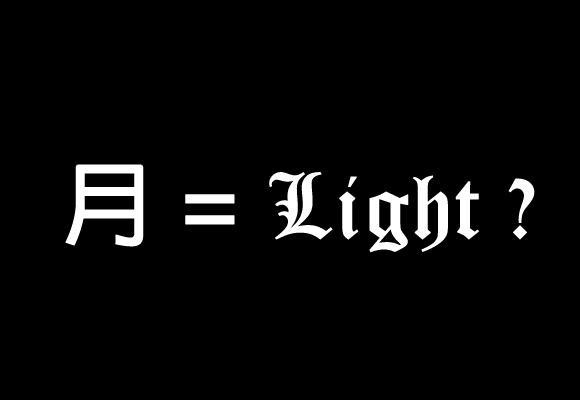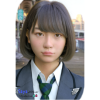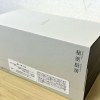
As much as politicians try to prevent them and doctors disapprove of them, kirakira Japanese names, the kinds that hold double meanings or are just plain hard to read, are apparently still on the rise. A recent survey of kids in their teens and early twenties showed that now more than 40 percent of students know someone at their school with an obscure reading for their name.
Reading name kanji is already a difficult task. A single symbol can have up to a dozen different readings, and while some are more common than others, there’s always a bit of guesswork that goes into deciphering the pronunciation of someone’s name. It’s bad enough when two people have names with the same symbols and entirely different readings. Imagine the frustration that teachers must face when a new student’s name is pronounced in a way that doesn’t even sound Japanese!
There’s a difference between naming your kid something “international” and making your kid’s name a nuisance. See if you can understand the reason behind the reading of some of these kirakira names.
In an online survey sampling 500 regular students in their teens and twenties, it was discovered that approximately 44.8 percent of students go to school with someone with a kirakira name. Nearly one-third actually share a class with that person. When asked the names of these unorthodox people, here’s a sample of what came up. If any of our readers can read Japanese, try to guess how you’d pronounce names like these: 真九州, 明日, 美凪子, and 音.
Give up? You might as well, because most of these names don’t relate to the Japanese readings of their kanji at all!
- 真九州 is for Makkusu, the only name of these four in which the kanji can technically match the reading, though the person’s parents were obviously acting on a stretch, trying to find symbols that would fit the sound of the Western name, Max.
- 明日 is meant to be read Tomoroh. The kanji are most commonly pronounced ashita, and hold the English meaning,”tomorrow.” This was obviously the inspiration for this kirakira name.
- 美凪子 is pronounce Biinasu, almost in line with some of the kanji’s actual readings. The symbols themselves mean beauty, calm, and child or young woman, with the last one often appearing at the end of girls’ names. Because the Japanese language lacks the “V” sound, this is the closest this girl’s parents could get to naming their daughter Venus.
- Last comes 音, read as Rizumu, the Japanese way of pronouncing the word “rhythm.” What’s particularly strange about this one is that the meaning of the kanji is actually “sound”! While it is used in the word for music, it’s in no way associated with the beat.
As Japan slowly becomes more open to Western influences, many parents wish to equip their kids with names that are easy for foreigners to relate to. Unfortunately, this attempt at foresight can sometimes override common sense. Parents, please do your kids a favor and name them things that their peers know how to pronounce!
Reference: LiviGen (Japanese)
[ Read in Japanese ]

 Japan’s top 20 flowery names for baby girls: love, hearts, and dreams
Japan’s top 20 flowery names for baby girls: love, hearts, and dreams Draft bill proposal seeks to curtail unconventional “kirakira” kanji name readings in Japan
Draft bill proposal seeks to curtail unconventional “kirakira” kanji name readings in Japan Japanese woman celebrates 100th birthday, boggles netizens’ minds with unusual name
Japanese woman celebrates 100th birthday, boggles netizens’ minds with unusual name Kanji fail — Japanese parents shocked to learn their baby girl’s name has inappropriate meaning
Kanji fail — Japanese parents shocked to learn their baby girl’s name has inappropriate meaning Japan’s top baby names for 2015: Will Naruto-influenced monikers still reign supreme?
Japan’s top baby names for 2015: Will Naruto-influenced monikers still reign supreme? Foreigner’s request for help in Tokyo makes us sad for the state of society
Foreigner’s request for help in Tokyo makes us sad for the state of society Japanese-style accommodation at the new Premium Dormy Inn hotel in Asakusa will blow your mind
Japanese-style accommodation at the new Premium Dormy Inn hotel in Asakusa will blow your mind Seaside scenery, history, and so many desserts on Yokohama’s Akai Kutsu【Japan Loop Buses】
Seaside scenery, history, and so many desserts on Yokohama’s Akai Kutsu【Japan Loop Buses】 Mikado Coffee is a 76-year-old coffee chain with a major celebrity connection
Mikado Coffee is a 76-year-old coffee chain with a major celebrity connection Red light district sushi restaurant in Tokyo shows us just how wrong we were about it
Red light district sushi restaurant in Tokyo shows us just how wrong we were about it Japan’s summertime towelket pillowcases are even better with the addition of Ghibli stars【Photos】
Japan’s summertime towelket pillowcases are even better with the addition of Ghibli stars【Photos】 Japanese city loses residents’ personal data, which was on paper being transported on a windy day
Japanese city loses residents’ personal data, which was on paper being transported on a windy day Japanese company starts project to restore Nakagin Capsules to capsule hotel
Japanese company starts project to restore Nakagin Capsules to capsule hotel Shinjuku arcade breaks Guinness World Record for having the most crane games
Shinjuku arcade breaks Guinness World Record for having the most crane games Japanese high school girl Saya returns to blow everyone away with her new look for 2016
Japanese high school girl Saya returns to blow everyone away with her new look for 2016 McDonald’s new Happy Meals offer up cute and practical Sanrio lifestyle goods
McDonald’s new Happy Meals offer up cute and practical Sanrio lifestyle goods Japanese ramen restaurants under pressure from new yen banknotes
Japanese ramen restaurants under pressure from new yen banknotes French Fries Bread in Tokyo’s Shibuya becomes a hit on social media
French Fries Bread in Tokyo’s Shibuya becomes a hit on social media New private rooms on Tokaido Shinkansen change the way we travel from Tokyo to Kyoto
New private rooms on Tokaido Shinkansen change the way we travel from Tokyo to Kyoto Tokyo Tsukiji fish market site to be redeveloped with 50,000-seat stadium, hotel, shopping center
Tokyo Tsukiji fish market site to be redeveloped with 50,000-seat stadium, hotel, shopping center Beautiful Ghibli sealing wax kits let you create accessories and elegant letter decorations【Pics】
Beautiful Ghibli sealing wax kits let you create accessories and elegant letter decorations【Pics】 Secret Kitchen bento serves Japanese flowers, birds, wind and moon in a box, but is it worth it?
Secret Kitchen bento serves Japanese flowers, birds, wind and moon in a box, but is it worth it? New definition of “Japanese whiskey” goes into effect to prevent fakes from fooling overseas buyers
New definition of “Japanese whiskey” goes into effect to prevent fakes from fooling overseas buyers Our Japanese reporter visits Costco in the U.S., finds super American and very Japanese things
Our Japanese reporter visits Costco in the U.S., finds super American and very Japanese things Studio Ghibli releases Kiki’s Delivery Service chocolate cake pouches in Japan
Studio Ghibli releases Kiki’s Delivery Service chocolate cake pouches in Japan All-you-can-drink Starbucks and amazing views part of Tokyo’s new 170 meter-high sky lounge
All-you-can-drink Starbucks and amazing views part of Tokyo’s new 170 meter-high sky lounge More foreign tourists than ever before in history visited Japan last month
More foreign tourists than ever before in history visited Japan last month New Pokémon cakes let you eat your way through Pikachu and all the Eevee evolutions
New Pokémon cakes let you eat your way through Pikachu and all the Eevee evolutions Disney princesses get official manga makeovers for Manga Princess Cafe opening in Tokyo
Disney princesses get official manga makeovers for Manga Princess Cafe opening in Tokyo Sales of Japan’s most convenient train ticket/shopping payment cards suspended indefinitely
Sales of Japan’s most convenient train ticket/shopping payment cards suspended indefinitely Sold-out Studio Ghibli desktop humidifiers are back so Totoro can help you through the dry season
Sold-out Studio Ghibli desktop humidifiers are back so Totoro can help you through the dry season Japanese government to make first change to romanization spelling rules since the 1950s
Japanese government to make first change to romanization spelling rules since the 1950s Ghibli founders Toshio Suzuki and Hayao Miyazaki contribute to Japanese whisky Totoro label design
Ghibli founders Toshio Suzuki and Hayao Miyazaki contribute to Japanese whisky Totoro label design Doraemon found buried at sea as scene from 1993 anime becomes real life【Photos】
Doraemon found buried at sea as scene from 1993 anime becomes real life【Photos】 Tokyo’s most famous Starbucks is closed
Tokyo’s most famous Starbucks is closed One Piece characters’ nationalities revealed, but fans have mixed opinions
One Piece characters’ nationalities revealed, but fans have mixed opinions We asked a Uniqlo employee what four things we should buy and their suggestions didn’t disappoint
We asked a Uniqlo employee what four things we should buy and their suggestions didn’t disappoint Foreigners misreading Japanese kanji of “two men one woman” is too pure for Japanese Internet
Foreigners misreading Japanese kanji of “two men one woman” is too pure for Japanese Internet Japanese men discuss the most embarrassing types of email addresses – Is yours on the list?
Japanese men discuss the most embarrassing types of email addresses – Is yours on the list? Anime Contact lenses will give you the shimmering eyes of a manga heroine 【Photos】
Anime Contact lenses will give you the shimmering eyes of a manga heroine 【Photos】 Everyday Japanese names that make English speakers chuckle
Everyday Japanese names that make English speakers chuckle “Family name researcher” discovers the most common full name in Japan
“Family name researcher” discovers the most common full name in Japan The 10 most attractive Japanese women’s names, as chosen by dating app users
The 10 most attractive Japanese women’s names, as chosen by dating app users Japanese elementary school student teaches us all how to pronounce English like a native speaker
Japanese elementary school student teaches us all how to pronounce English like a native speaker Renowned Japanese calligraphy teacher ranks the top 10 kanji that foreigners like
Renowned Japanese calligraphy teacher ranks the top 10 kanji that foreigners like Pokémon Center apologizes for writing model Nicole Fujita’s name as Nicole Fujita
Pokémon Center apologizes for writing model Nicole Fujita’s name as Nicole Fujita Japan’s Kanji of the Year revealed, reflects both the good and the bad of 2022
Japan’s Kanji of the Year revealed, reflects both the good and the bad of 2022 Four new era names the Japanese government rejected before deciding on Reiwa
Four new era names the Japanese government rejected before deciding on Reiwa Hey, “cool guy!” Here’s why you should double-check the meaning of your Japanese kanji T-shirt
Hey, “cool guy!” Here’s why you should double-check the meaning of your Japanese kanji T-shirt Twitter users say Japanese Prime Minister’s name is hiding in the kanji for Japan’s new era name
Twitter users say Japanese Prime Minister’s name is hiding in the kanji for Japan’s new era name What’s the real meaning of Japan’s “burning tofu” emoji?
What’s the real meaning of Japan’s “burning tofu” emoji? “A dead bug” and other amusing, adorable, snarky, and downright ridiculous test responses
“A dead bug” and other amusing, adorable, snarky, and downright ridiculous test responses Japan announces Kanji of the Year for 2019, and it was really the only logical choice
Japan announces Kanji of the Year for 2019, and it was really the only logical choice
Leave a Reply